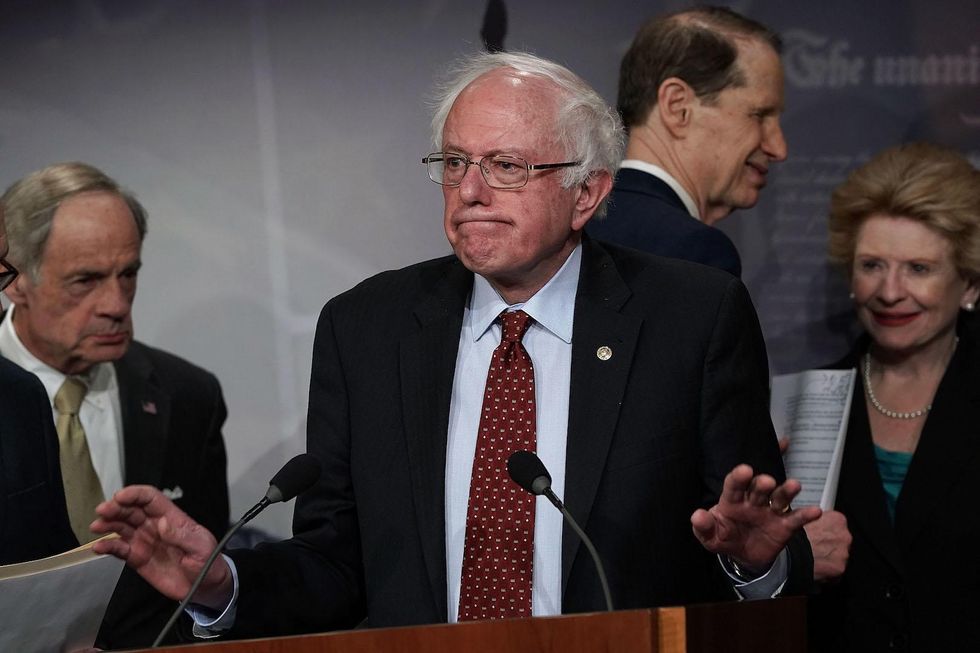
Sen. Bernie Sanders said he doesn't believe midterm elections will result in a 'blue wave,' but rather control of Congress will come down to a few races. (Alex Wong/Getty Images)

Democrats have long discussed and hoped for a powerful "blue wave" in response to the first two years of President Donald Trump's administration, a wave that would result in overwhelming Democratic victories in November 2018.
As the elections draw nearer, however, those hopes have been significantly diminished -- and Sen. Bernie Sanders (I-Vt.) doesn't believe there will be a blue wave at all.
"I happen to not believe that there's going to be this great blue wave," Sanders said Sunday, according to The New York Times. "I happen to believe that on election night, which party controls the U.S. House will come down to a very few seats."
Sanders made similar comments during an interview with The Hill that aired Monday.
"I know a lot of people talk about this blue wave and all that stuff, but I don't believe it," Sanders said.
Sanders elaborated on his belief that there would be no blue wave by saying he didn't believe either party could afford to be overconfident heading into the elections.
"I think it may happen," Sanders went on to say about Democrats taking control of Congress. "I'm doing everything I can to make it happen. But one thing I will absolutely guarantee you: It will not happen if people are sitting back and are cocky and talking about how sure they are of winning.
"I'm just issuing the warning, and that warning is that overconfidence will result in disaster," Sanders said.
As of Monday, Democrats aren't off to a good start if they want any kind of "wave." According to NBC News, Republicans have hit the polls in greater numbers in early voting so far:
"GOP-affiliated voters have surpassed Democratic-affiliated ones in early voting in Arizona, Florida, Georgia, Indiana, Montana, Tennessee and Texas, the data showed.Only in Nevada have Democratic-affiliated voters exceeded Republican-affiliated voters so far in early voting, according to the data."